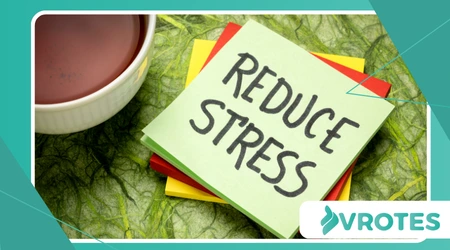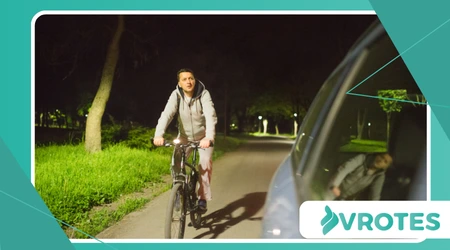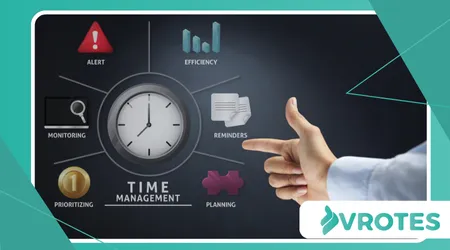Tips to Reduce Stress Without Adding Time to Your Day

reduce stress. Stress, in its chronic form, is a silent epidemic, silently eroding our health and happiness. We’ve all felt its grip: that persistent hum of anxiety, the endless to-do lists, the feeling of being perpetually overwhelmed.
The traditional advice often involves dedicated meditation sessions or lengthy exercise routines, which, while beneficial, can feel impossible to squeeze in.
The truth is, many of us are already operating at full capacity. The very thought of adding another obligation, even a positive one, can ironically increase stress.
This paradox is at the heart of our exploration.
What if stress reduction wasn’t about adding, but about refining? What if it was about smarter choices within your current framework?
Micro-Moments of Mindfulness: The Power of the Pause
One of the most potent Tips to Reduce Stress Without Adding Time to Your Day lies in embracing micro-moments of mindfulness. These aren’t lengthy meditations.
They’re brief, intentional pauses that re-center you.
Consider your morning coffee. Instead of scrolling through news, truly savor the aroma, the warmth of the cup, the taste. This small shift anchors you in the present.
Similarly, walking from your car to the office, notice your surroundings. Feel your feet on the ground. These moments, lasting mere seconds, accumulate significant benefits.
It’s like adding tiny, almost invisible, shock absorbers to your day. Each one helps absorb a bit of the daily bumps.
Strategic Breathing: Your Built-in Stress Reliever
Your breath is an immediate, always-available tool for stress reduction. Deep, diaphragmatic breathing activates the parasympathetic nervous system, signaling your body to relax.
Practice a simple 4-7-8 breathing technique. Inhale for four counts, hold for seven, exhale for eight. Repeat this just a few times.
Read more: Guided Meditation Scripts for Hormonal Turmoil
You can do this while waiting in line, during a brief work break, or even while responding to an email. No one needs to know you’re actively de-stressing.
This technique is a discreet power-up for your nervous system, available on demand. It costs nothing and takes no extra time.
Reclaiming Your Commute: Podcasts and Audiobooks for Peace
Transform your commute from a source of frustration to an oasis of calm. Ditch the stressful news radio or aggressive music.
Instead, opt for calming podcasts, insightful audiobooks, or even classical music. This small shift reframes your travel time.
It allows your mind to disengage from immediate pressures. You arrive at your destination feeling more refreshed, not drained.
Your commute becomes a mobile sanctuary, preparing you for the day or winding you down from it. It’s time already spent, repurposed.

Digital Detoxlets: Small Breaks, Big Impact
The constant digital influx is a major stressor. Implement “digital detoxlets” throughout your day.
Resist the urge to check emails or social media during brief lulls. Use those moments to look out a window or stretch.
++ Mindfulness Practices for Calming Hot Flash Anxiety
A study published in “Computers in Human Behavior” in 2023 indicated a significant correlation between frequent social media checks and increased self-reported stress levels. Even short breaks can disrupt this pattern.
These small acts of digital resistance create vital mental breathing room. They prevent information overload from escalating into anxiety.
Movement Snacks: Energize and De-stress on the Go
You don’t need a full gym session to reap the benefits of movement. Incorporate “movement snacks” into your day.
Take the stairs instead of the elevator. Do a few stretches at your desk every hour. Walk to a colleague’s office instead of emailing.
These bursts of physical activity release endorphins, natural mood lifters. They also break up long periods of sitting, which is beneficial for both body and mind.
Think of them as mini-reboots for your energy and focus. They’re quick, effective, and require no special equipment.
Mindful Eating: A Taste of Calm
Eating mindfully is another excellent way to implement Tips to Reduce Stress Without Adding Time to Your Day. Instead of rushing through meals, take a moment.
Notice the colors, textures, and flavors of your food. Chew slowly. Put your fork down between bites.
This practice not only aids digestion but also brings a sense of calm to an otherwise often hurried activity. It’s about truly nourishing yourself.
Your mealtime transforms from a necessity into a moment of intentional well-being. It’s a simple act with profound benefits.
The Art of Saying “No”: Protecting Your Boundaries
One of the most challenging, yet crucial, stress reduction techniques is learning to say “no.” This doesn’t mean being unhelpful.
It means understanding your limits and protecting your boundaries. Overcommitting is a direct path to burnout.
Read here: Crystal Therapy for Emotional Well-Being in Menopause
Politely decline requests that genuinely overextend you. Prioritize tasks that align with your core responsibilities and values.
Saying “no” to an extra commitment is saying “yes” to your own peace of mind. It’s an investment in your personal capacity.
The Anti-Overwhelm Strategy
Effective prioritization is a superpower in stress reduction. Focus on the most impactful tasks first.
Use a simple “urgent/important” matrix.
Tackle what truly matters, and defer or delegate the rest.
This prevents the feeling of being constantly behind. It provides clarity amidst the chaos of daily demands.
By clarifying your focus, you naturally reduce the mental load. It’s about working smarter, not just harder.

The Power of Preparation: A Stitch in Time
A little preparation goes a long way in preventing future stress. Lay out your clothes the night before.
Pack your lunch in advance. Create a simple to-do list for the next day before you finish work.
These small acts of foresight smooth out transitions. They eliminate morning rushes and unexpected hurdles.
Being prepared feels like having a secret weapon against the unpredictable. It provides a sense of control.
Connecting with Nature: A Moment of Renewal
Even a brief connection with nature can significantly reduce stress. Step outside for two minutes.
Feel the sun on your face, listen to the birds, or simply observe a tree. This quick sensory input can ground you.
If you can’t go outside, look out a window at a natural scene. Nature has an inherent calming effect on the human psyche.
It’s a mini-escape, a refreshing balm for the mind, and easily integrated into a busy day. These are essential Tips to Reduce Stress Without Adding Time to Your Day.
Gratitude Moments: Shifting Your Perspective
Practicing gratitude for just a minute a day can dramatically shift your perspective. Think of three things you’re grateful for.
They can be small: a warm cup of coffee, a kind word, or a sunny day. This simple exercise reprograms your brain.
It trains your mind to focus on the positive, countering the natural inclination towards negative bias. It’s a powerful mental reset.
Gratitude is a free, limitless resource that enhances well-being without adding a single minute to your schedule.
The Importance of Self-Compassion
Finally, practice self-compassion. Be kind to yourself when things don’t go as planned.
Understand that everyone experiences stress and imperfections. Avoid harsh self-criticism.
Treat yourself with the same empathy you’d offer a friend. This internal shift reduces a significant source of stress.
Self-compassion builds resilience, allowing you to bounce back more easily from setbacks. It’s foundational to long-term well-being.
Mastering Your Time, Mastering Your Calm
Managing stress in 2025 doesn’t demand radical overhauls or significant time commitments. It requires intelligent, consistent micro-adjustments.
The Tips to Reduce Stress Without Adding Time to Your Day shared here are designed to seamlessly weave into your existing life, offering powerful relief without burdening your schedule.
By incorporating these small, deliberate practices, you’re not just coping with stress; you’re actively cultivating a more resilient, peaceful, and balanced existence.
Begin today, and experience the transformative power of these small, yet mighty, changes. Your well-being depends on it.
Frequently Asked Questions
How quickly can I expect to see results from these stress reduction tips?
You can often feel an immediate shift in calm after practicing techniques like strategic breathing or mindful moments.
Consistent application over a few weeks will lead to more sustained benefits and noticeable improvements in overall stress levels.
Are these tips suitable for severe stress or anxiety disorders?
These tips are excellent for everyday stress management and can complement professional treatment for anxiety or severe stress.
However, they are not a substitute for professional medical or psychological help if you are experiencing severe or debilitating conditions.
Can I combine multiple tips throughout my day?
Absolutely! Combining multiple tips is highly encouraged.
For example, you could practice mindful eating during lunch, use strategic breathing during a short break, and listen to a calming podcast on your commute. The more you integrate, the greater the cumulative effect.
What if I forget to practice these tips during a busy day?
It’s perfectly normal to forget when you’re overwhelmed. Don’t be discouraged. The key is gentle persistence. Remind yourself when you remember, and simply pick up where you left off.
Every little bit helps, and consistency builds over time.
How can I make these tips a habit without feeling like another chore?
Start small and pick just one or two tips that resonate most with you. Focus on integrating them naturally into existing routines.
For instance, tie a breathing exercise to waiting for your computer to load, or mindful eating to your first few bites of a meal. Make it a game, not a chore.
